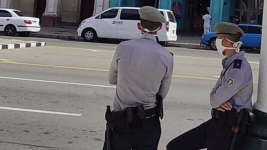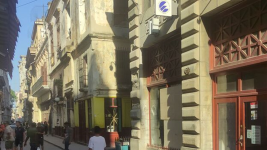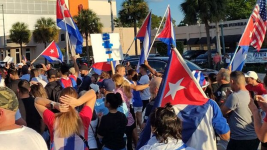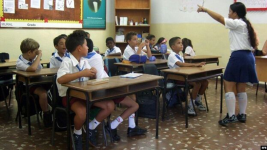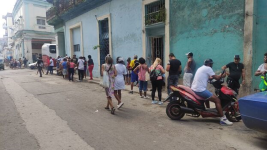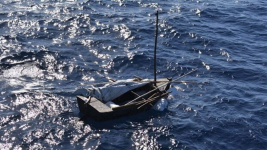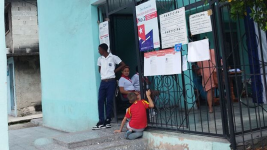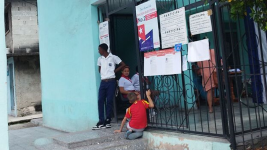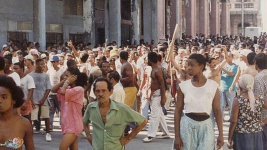 The popular uprising known as El Maleconazo began on Avenida del Puerto and many people joined along the Havana Malecon. (Karel Poort)
The popular uprising known as El Maleconazo began on Avenida del Puerto and many people joined along the Havana Malecon. (Karel Poort)
14ymedio, Yoani Sánchez, Havana, 5 August 2022 — Shirtless and with protruding ribs, this is how the protesters on 5 August 1994 took the Havana coastline during the
Maleconazo. The few photos that have been released of that day show faces with sharp cheekbones and a desperate look. From that uprising, continuing to July 11 of last year, Cubans learned several civic lessons and adopted new methods of protest, but the regime, also, has surpassed itself in repression.
While those who gathered 28 years ago rushed to Havana’s main avenue, desperate to board any ship that would take them off the Island, those of the summer of 2021 were looking not to escape, but to stand up to a system that has condemned them to material misery and the lack of freedoms. The scant cohesion in that earlier outburst, in the middle of the
Special Period, has little in common with the compact groups, setting the pace with slogans of freedom and heading towards key points in the cities that were seen on 11 July 2021, the
protests now called ’11J’.
In the earlier action, the Malecón wall functioned as a mousetrap between the protesters and the shock troops, dressed in civilian clothes, launched by Castroism against those ragged and hungry people; but a year ago the “organism” of popular protest was already sufficiently evolved to spread through central squares, in front of the institutions of power and travel through streets where new voices were added.
Click link above for full article.

